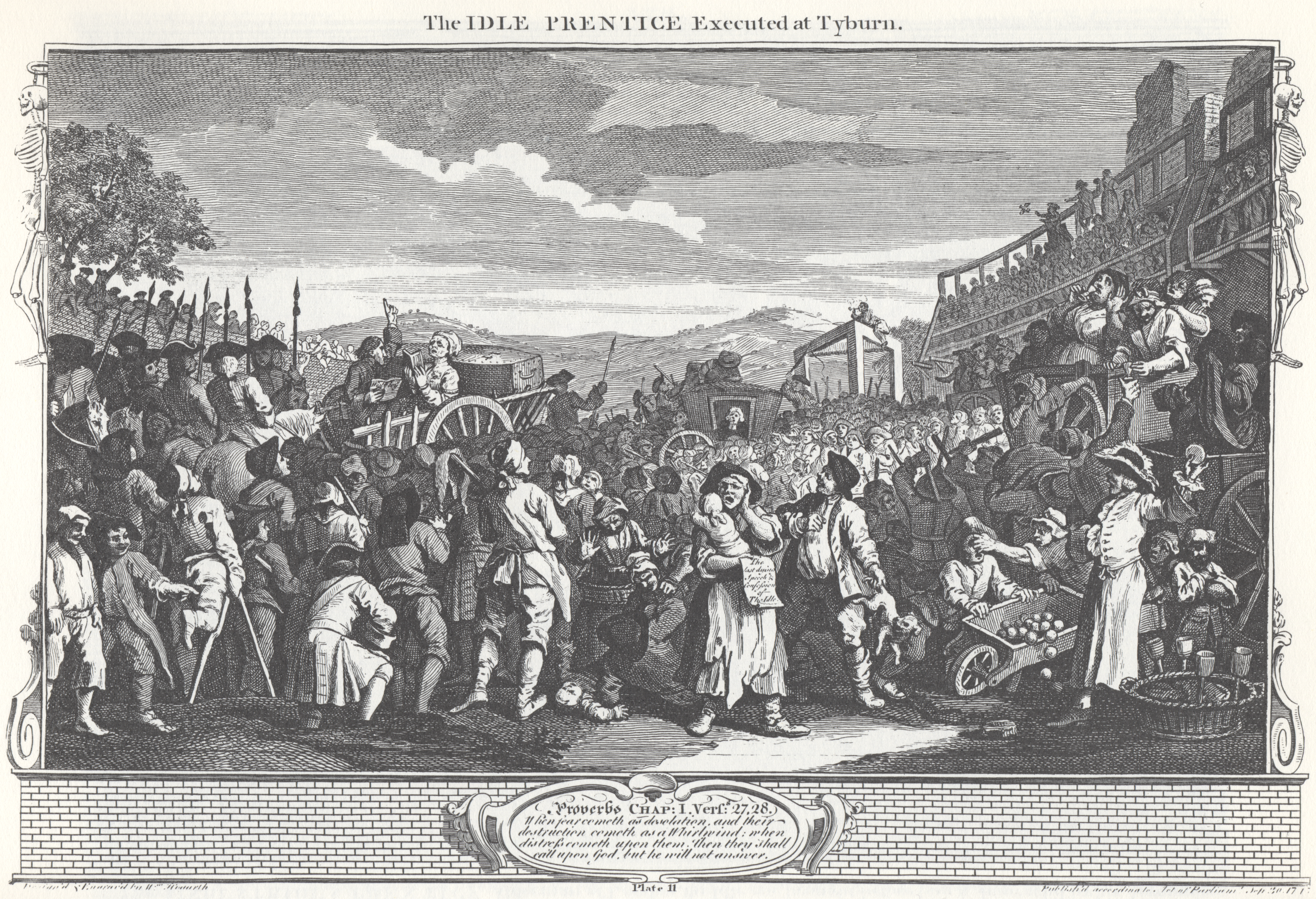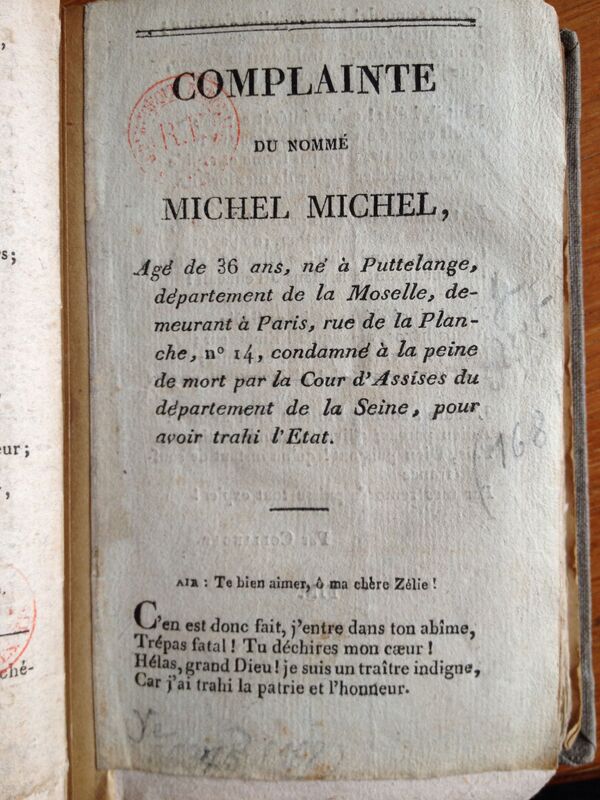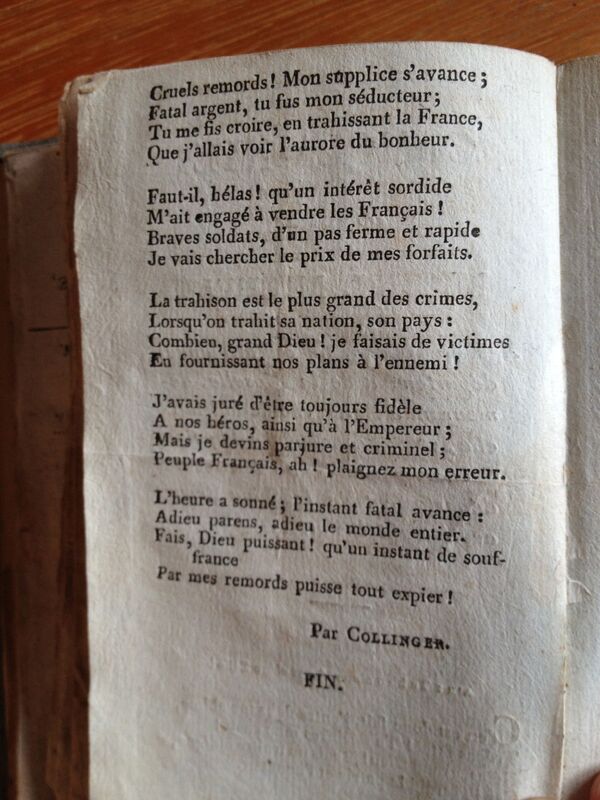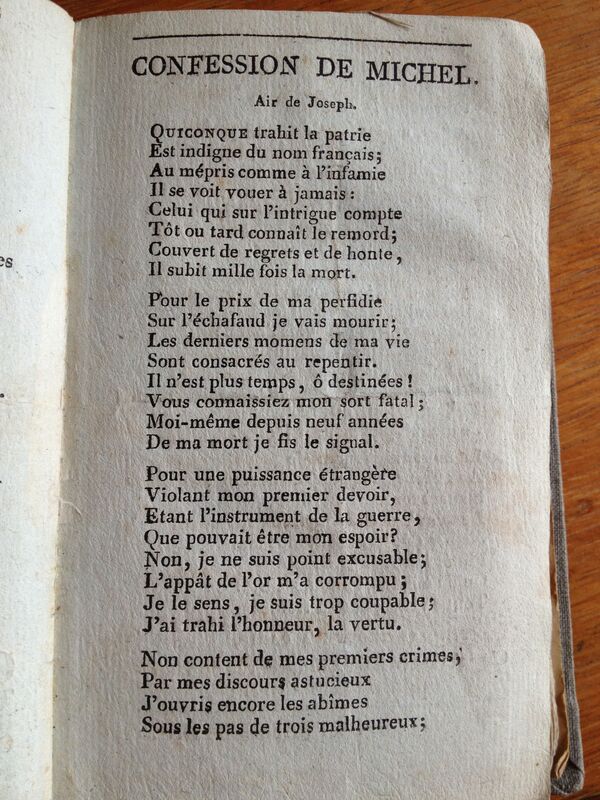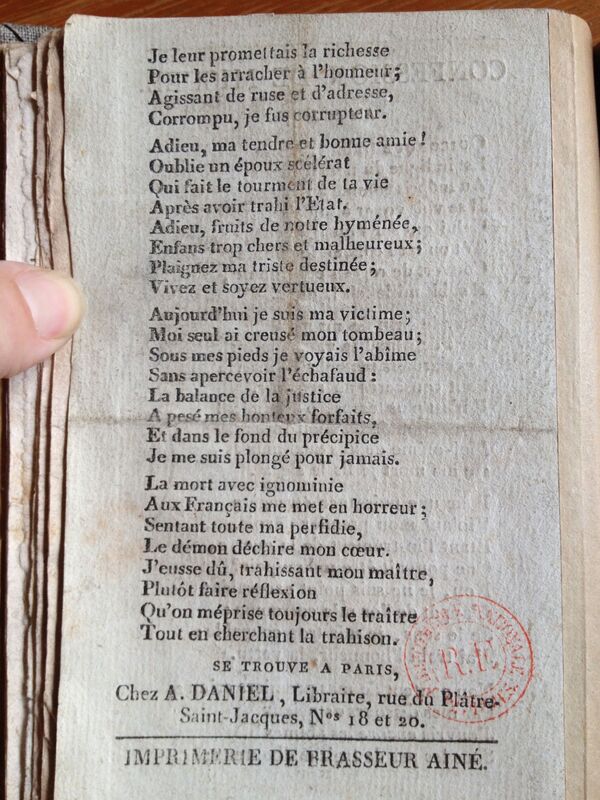Complainte du nommé Michel Michel,
- Ballad Title
- Complainte du nommé Michel Michel,
- Indicated Tune
- Te bien aimer ô ma chère Zélie
- Ballad Location
- BnF Franois Mittérand, Recueil de chansons Ye 56375, 161-240
- Digital Source
- Proces instruit par la Cour d'assises de Paris contre Michel Michel, Louis Saget, Louis-Francois-Alexandre Salmon
- Subject/theme
- guillotine
- Male
- treason
- Background Information
- Michel Michel, convicted of treason during (?) Napoleonic wars. He worked in the offices of the War Ministry and was convicted of passing secrets to the Russians.
- Event Date
- 1812
- Event Location
- Paris
- Ballad Author
- Par Collinger.
- Crime
- treason
- Gender of Accused
- Male
- Method of Punishment
- guillotine
- Relevant Countries
- France
- Category
- Crime and Punishment Ballads
- Sub-Category
-
 Execution Ballads
Execution Ballads
- Language
-
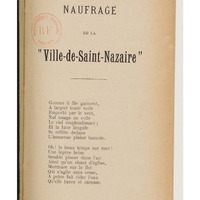 French Ballads
French Ballads
- Notes
-
Wikipedia, First French Empire:The subsequent series of wars known collectively as the Napoleonic Wars extended French influence over much of Western Europe and into Poland. At its height in 1812, the French Empire had 130 départements, ruled over 44 million subjects, maintained an extensive military presence in Germany, Italy, Spain, and the Duchy of Warsaw, and could count Prussia and Austria as nominal allies. Early French victories exported many ideological features of the French Revolution throughout Europe. Seigneurial dues and seigneurial justice were abolished, aristocratic privileges were eliminated in all places except Poland, and the introduction of the Napoleonic Code throughout the continent increased legal equality, established jury systems, and legalized divorce. However Napoleon also placed relatives on the thrones of several European countries and granted many noble titles, most of which were not recognized after the empire fell.
Historians have estimated the death toll from the Napoleonic Wars to be 6.5 million people, or 15% of the French Empire's subjects. In particular, French losses in the Peninsular War in Iberia severely weakened the Empire; after victory over the Austrian Empire in the War of the Fifth Coalition (1809) Napoleon deployed over 600,000 troops to attack Russia, in a catastrophic French invasion of the empire in 1812. The War of the Sixth Coalition saw the expulsion of French forces from Germany in 1813.
Napoleon abdicated in 11 April 1814. The Empire was briefly restored during the Hundred Days period in 1815 until Napoleon's defeat at the Battle of Waterloo. It was followed by the restored monarchy of the House of Bourbon. - Transcription
-
C'en est donc fait, j'entre dans ton abîme,
Trépas fatal! Tu déchires mon coeur!
Hélas, grand Dieu! je suis un traître indigne,
Car j'ai trahi la patrie et l'honneur.
Cruels remords! Mon supplice s'avance;
Fatal argent, tu fus mon séducteur;
Tu me fis croire, en trahissant la France,
Que j'allais voir l'aurore du bonheur.
Faut-il, hélas! qu'un intérêt sordide
M'ait engagé à vendre les Français!
Braves soldats, d'un pas ferme et rapide
Je vais chercher le prix de mes forfaits.
La trahison est le plus grand des crimes,
Lorsqu'on trahit sa nation, son pays:
Combien, grand Dieu! je faisais de victimes
En fournissant nos plans à l'ennemi!
J'avais juré d'être toujours fidèle
A nos héros, ainsi qu'à l'Empereur;
Mais je devins parjure et criminel;
Peuple Français, ah! plaignez mon erreur.
L'heure a sonné; l'instant fatal avance:
Adieu parens, adieu le monde entier.
Fais, Dieu puissant! qu'un instant de souffrance
Par mes remords puisse tout expier!
Par Collinger.
FIN.
